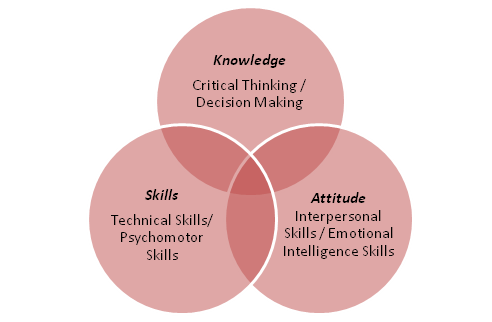KSA model & effective training
|
Competence is a cluster of related abilities, knowledge, and skills that enable a person to act effectively in a job or situation.
Competence indicates sufficiency of knowledge and skills that enable someone to act in a wide variety of situations. Because each level of responsibility has its own requirements, competence can occur in any period of a person's life or at any stage of his or her career. The clue of effective training is to equip participants in specific skills, knowledge and attitudes so their competences in particular subject may develop. |
General aim of each training is to make a change which does not happen itself, but is a result of well-planed educational process. In order to assure the highest quality the training should follow simple rules:
- prepared flow with guiding questions (it should has a clear beginning and a clear end)
- highlighted key points (summing up and paraphrasing for clarification is a hit for facilitator)
- well-planned in time (enough of time for discussions and debriefing)
- balanced participants (with different background, experience, etc.)
- peer-to-peer learning (learning from each other is described as one of the best training techniques)
- exemplification (theory should be explained with specific examples)
- self-evaluation (time for participants to reflect on what they have learn and how they will use it)

